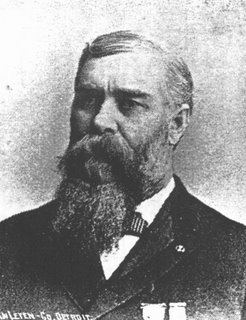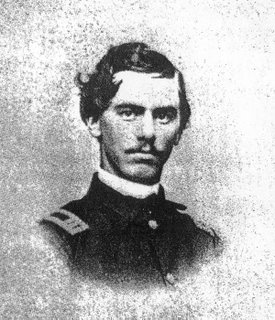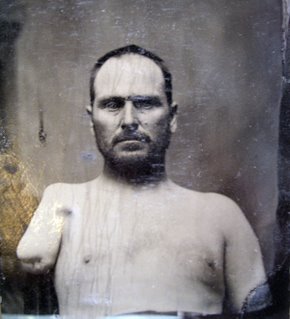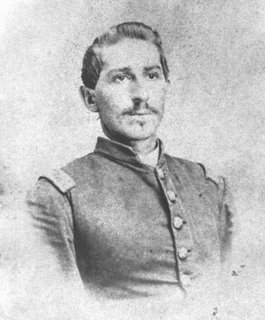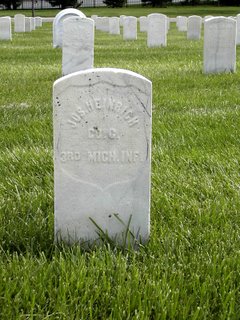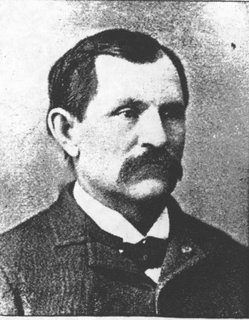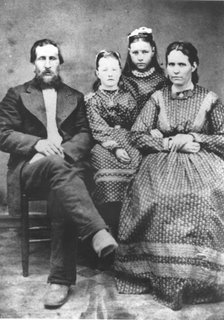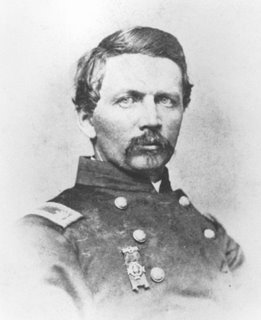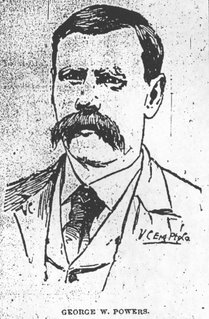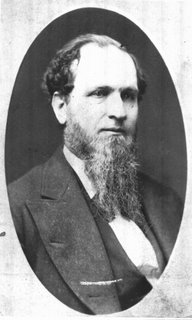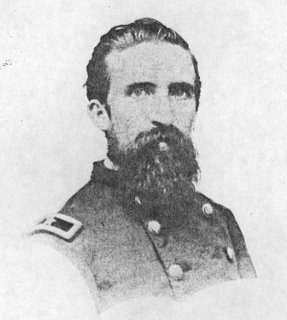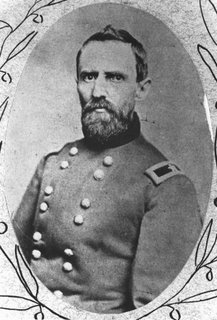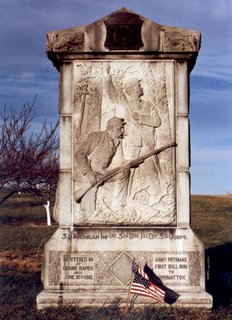Existing records show that at least 32 men were court-martialed in the Third Michigan for a variety of offenses ranging from black-marketeering (Ambrose Bell) to destruction of private property (Captain Emery Bryant) to being absent from one’s company while being engaged with the enemy (Lieutenant James Bennett).
Only three men are known to have been tried, convicted and sent to the penitentiary in Washington, DC: Joseph Badger, James Maury and Abram Shear. (This was most likely the old Arsenal pentinentiary in Washington, where the Lincoln assassination conspirators would be tried and hung in 1865.)
By far and away the offense reported most often in the records is that of desertion. Of the total number enrolled in the Regiment between June of 1861 and June of 1864 122 desertions were reported.
The questions of who was a deserter and when he deserted are often difficult to answer from this distance, and the number of deserters calculated in this present study reflects a more accurate number of “real” deserters in the Regiment.
For example, a man might be taken sick to a hospital or wounded in action and transferred to a hospital in Washington or further north and never heard from again. Therefore he would be dropped from the rolls often as a deserter (under G.O. no. 92 regarding deserters) when in fact he may have died or discharged for disability and sent home.
This was most likely the case in September of 1862 when nearly four dozen men of the Third Michigan were charged with desertion. As the Regiment was trying to catch its breath after a summer of fighting during the horrific Peninsula Campaign in Virginia, it sought to re-group near Upton's Hill, Virginia. On September 21, 1862, at Upton's Hill at least 40 men were reported as having deserted (or nearly 33% of the total reported as deserters for the entire war).
Subsequent research, however, has shown that like many of the reported desertions, the "Upton's Hill" incident simply indicated a lack of information by company and regimental leadership as to the whereabouts of many of those reported as deserters. In fact, the majority of those reported as deserters had been discharged for disability at Upton's Hill (although the charges remained on their records for years afterwards).
Overall 51 men ended their service in the Third Michigan listed as a deserter, and all but five of those have been accounted for today.
Next: where are they buried?
Only three men are known to have been tried, convicted and sent to the penitentiary in Washington, DC: Joseph Badger, James Maury and Abram Shear. (This was most likely the old Arsenal pentinentiary in Washington, where the Lincoln assassination conspirators would be tried and hung in 1865.)
By far and away the offense reported most often in the records is that of desertion. Of the total number enrolled in the Regiment between June of 1861 and June of 1864 122 desertions were reported.
The questions of who was a deserter and when he deserted are often difficult to answer from this distance, and the number of deserters calculated in this present study reflects a more accurate number of “real” deserters in the Regiment.
For example, a man might be taken sick to a hospital or wounded in action and transferred to a hospital in Washington or further north and never heard from again. Therefore he would be dropped from the rolls often as a deserter (under G.O. no. 92 regarding deserters) when in fact he may have died or discharged for disability and sent home.
This was most likely the case in September of 1862 when nearly four dozen men of the Third Michigan were charged with desertion. As the Regiment was trying to catch its breath after a summer of fighting during the horrific Peninsula Campaign in Virginia, it sought to re-group near Upton's Hill, Virginia. On September 21, 1862, at Upton's Hill at least 40 men were reported as having deserted (or nearly 33% of the total reported as deserters for the entire war).
Subsequent research, however, has shown that like many of the reported desertions, the "Upton's Hill" incident simply indicated a lack of information by company and regimental leadership as to the whereabouts of many of those reported as deserters. In fact, the majority of those reported as deserters had been discharged for disability at Upton's Hill (although the charges remained on their records for years afterwards).
Overall 51 men ended their service in the Third Michigan listed as a deserter, and all but five of those have been accounted for today.
Next: where are they buried?
